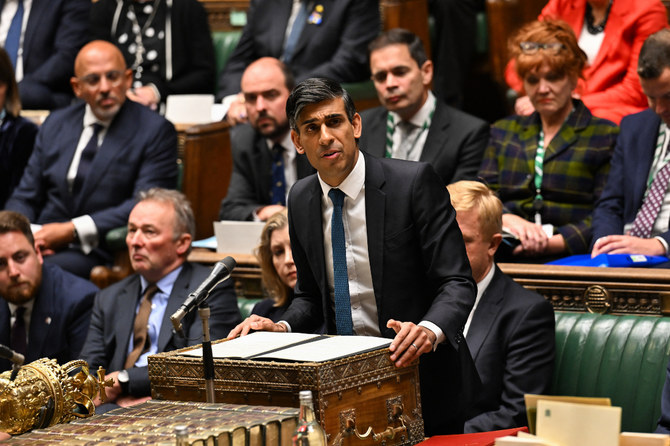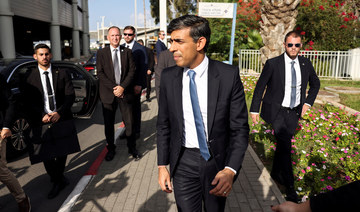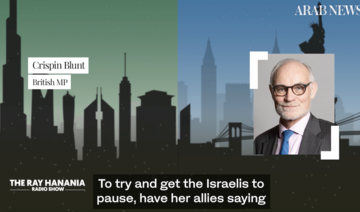LONDON: UK Prime Minister Rishi Sunak has said his government will not “rush to judgement” after an explosion at a hospital in Gaza on Tuesday.
He called for a “calm and cool” response as Israel and Hamas each claimed that the other side was responsible for the blast at Al-Ahli Hospital in Gaza City, which has left hundreds of people dead.
Addressing the House of Commons, Sunak said: “Our intelligence services have been rapidly analysing the evidence to independently establish the facts. We are not in a position at this point to say more than that.”
Later in the day, he said: “This is obviously a complicated situation on the ground, but it is right that we approach it with a calm and cool manner, don’t rush to premature judgments, take the time to understands what’s happened, (and) that’s what we’re doing.”
Sunak’s approach is in contrast to that of US President Joe Biden, who said in a meeting with Israeli Prime Minister Benjamin Netanyahu that the explosion “appears as though it was done by the other team, not you.”
UK Foreign Secretary James Cleverly told the House of Commons: “We take note of what President Biden has said, but we will come to our own judgment, we will work on that quickly, and we will ensure that our assessment is put in the public domain as soon as we are confident of the details.”
He was echoed by UK Defense Secretary Grant Shapps, who said premature accusations of responsibility could “make things worse,” adding: “I think it’s really important that we give (the security services) the opportunity to gather those facts so we don’t jump to conclusions.”
Details over the explosion at Al-Ahli Hospital remain contested, with Hamas immediately saying it was caused by an Israeli airstrike that had killed at least 500 people.
Israeli authorities have since released images and audio footage they say was intercepted by Israeli security that shows the blast was caused by a rocket fired by the Palestinian militant group Islamic Jihad.
Scottish First Minister Humza Yousaf, who has relatives trapped in Gaza, called the hospital bombing a “complete and utter human tragedy” and “a complete breach of international law.”
He told the BBC: “I think everybody has a responsibility to condemn it and condemn it in the strongest possible way.”
Archbishop of Canterbury Justin Welby said he is in “profound mourning” after the “atrocious” explosion, having previously warned that hospitals in the area, including Anglican-run Al-Ahli, were in a precarious situation.
Sunak has so far refused to back calls for a ceasefire, insisting that Israel has “a right to defend itself” after hostilities broke out following the Hamas attack on Oct. 7.
On Wednesday, he met the family of a British national abducted by Hamas in the attack. At least seven Britons were killed on Oct. 7 and nine remain unaccounted for.
Sunak said his government is working “around the clock” to secure the release of UK nationals held hostage in Gaza.


























